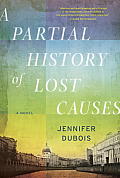
When my father was ill with Alzheimer's, he once brought home an enormous stuffed wolf from our town's local dump. I was probably a sophomore in high school at the time. In those days my father was still driving short distances and talking, but not remembering or judging very well. He'd gone to the dump on an errand and had seen the wolf and felt sorry for it. The wolf had probably been abandoned because it was too terrifying for a child to love; it had a menacing red mouth and crazed, slightly manic blue eyes. But somehow it had engaged my father's sympathies, and he brought it home and sat it across from him at the dining room table, where he sat for many hours a day trying to rewrite his music. He'd been a very gifted composer in his previous life. By the time the wolf came to stay with us, my mother had long ago copied and hidden my father's original scores.
This snapshot — of my father sitting across from an enormous stuffed wolf, whose horrifying eyes my mother eventually concealed with sunglasses — is probably the single best distillation of the experience of Alzheimer's in my life. It's all there in that scene — my mother's love for my father in preserving his original scores, the remnants of my father's endlessly sweet and whimsical self in his concern for the wolf (this was very nearly the kind of thing he would have done when he was well), the strange repulsiveness of having a discarded stuffed wolf at the table, and the utter futility of trying to fight any of it. And also, just as much, is the consoling absurdity of the sunglasses: I remember how my mother and I laughed and laughed over them. It was a laughter tinged with desperation, but it was real. The wolf was truly funny — dark, and absurd, and horrible, and hilarious. My mother and I engaged in this kind of laughter many times during the 13 years my father was sick, and we emerged armed with a capacity to take real comfort in absurdity. Of all the dubious blessings granted by Alzheimer's, this is the one for which I am the most grateful.
While I was writing A Partial History of Lost Causes, one of the first things I knew about the character of Irina was that she would have that quality — a hard-won capacity to find the redemptive comedy around the edges of tragedy. As Irina is confronting her diagnosis of Huntington's disease and all of its dreadful implications, she indulges in loads of self-pity without, I hope, ever losing her mordant sense of humor. She's capable of viewing her own attempts to disengage from life with a wry acknowledgment of their uselessness; she is capable of secretly and half-seriously suspecting that her own death will mean the end of the universe while simultaneously mocking herself for such epic solipsism. As she nears the end of her expected healthy life span, Irina is presented with the choice of either denying or embracing the bleak absurdity of her situation — and she doesn't only embrace the absurdity, she goes chasing it, running off to St. Petersburg to try to track down her dead father's beloved chess champion, Aleksandr Bezetov. (Bezetov, it turns out, has his own fairly absurd quest underway: a quixotic political campaign against Vladimir Putin.) And throughout Irina's travels, her own inner monologue — along with her robust sense of irony — is her most reliable companion, whether she's bumbling through a foreign political landscape or enduring the derision of a soldier in a night club. Humor is widely — and rightly, I think — understood as a kind of armor. But in Irina's case — as in the case of my mother and me — it's also a kind of salvation.
And in a small way, Irina's sense of humor speaks to the deeper elements of negative capability that she and Aleksandr — and everyone else in the world — must grapple with. We are expected to somehow live knowing that we will die. We are expected to die believing that the world will somehow pick itself up and stagger on without us. We are confronted with realities that are equally impossible to either believe or disbelieve. And sometimes — quite often, actually — things are hideous and hilarious at exactly the same time. Sometimes a stuffed wolf from the dump shows up at the table, and all you can do is offer it a pair of sunglasses.